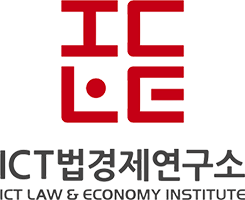언론보도
게시판
[Truth on the Market] The View from Korea: A TOTM Q&A with Dae Sik Hong
The View from Korea: A TOTM Q&A with Dae Sik Hong
홍대식 교수(서강대학교 법학전문대학원)
2024. 12. 11. Truth on the Market

Professor Hong, could you please tell us a bit more about your background and how you got interested in digital competition regulation?
In South Korea, I have unique combined experience as a court judge and as an antitrust specialist at a major law firm, conducting numerous research projects that connect theory and practice. I have a particular interest in competition law, consumer law, and economic regulation related to the digital economy. In addition to academic research, I have provided policy advice to Korea’s competition authority, sector-specific regulatory authority for media and telecommunications, and policy-research institutions.
And what have you observed? What is the Korea Fair Trade Commission (KFTC) currently trying to achieve?
The KFTC is clearly focusing on regulating online platforms more actively. It keeps trying to introduce new regulations, following a trend from the EU, which has taken the initiative of regulating online platforms (the clearest example is the Digital Markets Act). The KFTC has also launched several investigations of online platforms in South Korea, such as three self-preferencing cases against Naver; a self-preferencing case against Kakao Mobility; and two cases against Google for forcing smartphone makers to install its Android operating system on their phones and banning the use of modified Android OS versions on their devices, and for preventing mobile-game developers from releasing games via competing Android app-store providers.
Please give us a bit of background on the South Korean online-platform market.
In South Korea, Coupang takes the place of Amazon (Amazon is not present, but Coupang had 24.5% market share as of 2022, whereas the second-biggest competitor, Naver, had 23.3% market share). Naver is the equivalent of Google in the online-search service market. Google exists in South Korea, but it only had a 30% market share, compared to Naver’s 60% as of 2023. Kakao is the South Korean equivalent of Whatsapp (which is present in South Korea, but has only a marginal market share). It had about 94% market share as of 2023. Apple and Meta are active in South Korea, too.
Could you tell us a bit more about the position of Apple compared to South Korean firms like Samsung? Also, how big are Instagram and Facebook in your country?
In South Korea, Apple is perceived as a company competing with Samsung in the smartphone market and with Google in the app-store market. As of 2023, Samsung had 64% market share in the smartphone market and Apple had 35%, while in the app-store market—which is influenced by the smartphone market—Google’s share is dominant. In Korea, as of 2023, Meta held about 60% market share in the social-networking service (SNS) market, with recent trends showing a decrease in Facebook users and an increase in Instagram users.
That’s interesting. Why do you think Google hasn’t been able to penetrate the South Korean market to the same extent as in other countries, where it often has a market share in excess of 90%?
I believe that Naver, the leading domestic search-service provider, has gained a competitive advantage over Google and enjoys network effects by combining its unique search environment and differentiated service development with the advantage of being a native-language search service. When local-language content was scarce, Naver secured a large amount of native-language content on its portal, creating a search environment where users circulate within the portal. They also developed differentiated services, such as real-time popular search terms and related search-term services.




